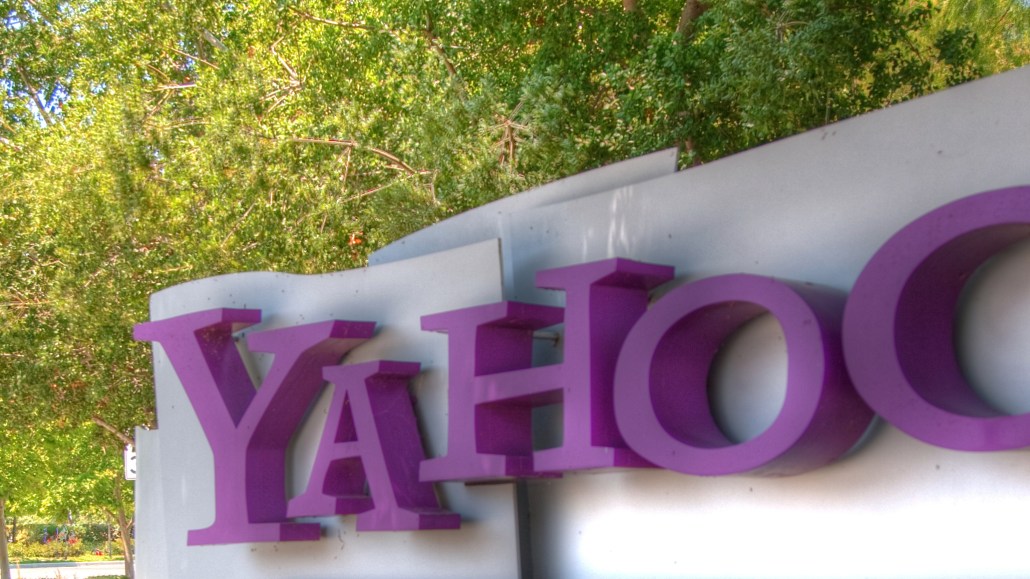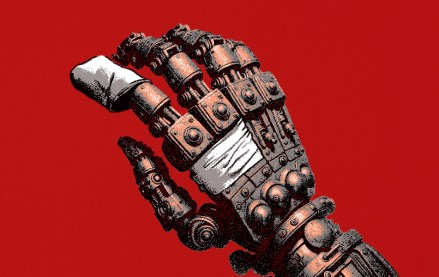‘Our relationship is non-existent’: Yahoo still has fences to mend with agencies

Yahoo’s desire to be a tech company still isn’t making it many friends on Madison Avenue.
Since 2012, CEO Marissa Mayer has billed Yahoo not as a media business but as a technology company, scooping up startups such as Tumblr and Flurry and focusing the bulk of its efforts on building and updating its product portfolio. That focus often came at the expense of the company’s relationships with agencies, which have taken umbrage with their second-class status at Yahoo.
That impression was crystallized by two missteps in her tenure: the disastrous, short-lived tenure of COO Henrique de Castro, who rubbed many at agencies the wrong way, and Mayer’s unfortunate oversleeping of a dinner with Interpublic Group agencies and clients in Cannes last June. The bad news for Yahoo: It still has a ways to go to mend fences.
“Our relationship with Yahoo is fairly nonexistent,” said Jacqui Hannigan, vp of media strategy at RP3. “They’re not reaching out. It doesn’t seem like it’s a priority for them.”
That’s a common gripe lately among agencies, many of which have complained publicly about Yahoo’s agency relations since Mayer stepped up as CEO. It’s a conflict of cultures for agencies, which are used to publishers catering to their needs and building partnerships rather than relying strictly on transactional deals. That effort hasn’t improved much since last January, when Mayer fired de Castro, who was tasked with cozying up with Yahoo’s ad partners.
“I want to move away from transactional relationships with lots of partners to deeper ones with fewer partners,” said Jeff Tan, director of digital strategy at Aegis Innov8. “That’s not just a Yahoo thing but an idea that other big companies need to embrace as well.”
This cultural divide may have trickled down to Yahoo’s salespeople, whom multiple agency executives said are consistently slow to respond to RFPs and have been heavily focused on either selling off-the-shelf deals or pushing buyers toward Yahoo’s more expensive premium magazine-style native ads — despite the format’s inventory constraints.
“They’re always trying to sell me the Cadillac, even if I only need the Chevy,” said one agency executive. “The problem is they don’t even have enough Cadillacs to sell.”
Another agency executive, who asked to remain anonymous, approached Yahoo with a campaign idea that the agency hoped would utilize Yahoo’s various assets, including both the company’s search and user data. Yahoo, however, came back with a standard, IAB banner campaign. “We were expecting big ideas but only got small ones,” the executive said. Yahoo did not respond to request for comment in time for publishing.
Yahoo’s attitude toward agencies is particularly puzzling considering the fact that the company needs its advertisers now more than ever. Yahoo’s total revenue slid 3 percent last quarter, while its display ad business, a consistent concern, reported a 7 percent dip to $394 million. Yahoo has tried to turn that around. This month, Mayer shuffled Yahoo’s ad tech leadership in an effort to reinvigorate its ad operations.
Not all agencies have had the same issues with Yahoo, however. One executive at a large media agency said that dealing with Yahoo on a day-to-day basis hasn’t been particularly contentious. “They’re not creating any problems for me. If we were talking about Google, I could talk to you for 30 minutes.”
The executive did point out one consistent sore spot between Yahoo and the agency world: Mayer herself. The CEO has become notorious for her standoffish approach to agency relations, a dynamic captured well by the Cannes broken-alarm situation. Despite promises of a charm offensive, agency execs aren’t buying in just yet.
“I’m getting the sense that she meets with us because she feels she has to, not because she actually wants to,” the executive said.
Other media buyers say that disinterest is understandable, considering that Yahoo is right now focused on building products that will attract the people whom advertisers want to reach. Mayer, with her engineering background, just doesn’t have that advertising mindset.
“The products and the tech has to come first,” said one agency executive. “Mayer’s thinking that she has to transform the product and company from what they are now because Google is going to destroy them if they don’t.”
More in Media

Why some publishers aren’t ready to monetize generative AI chatbots with ads yet
Monetization of generative AI chatbot experiences is slow going. Some publishing execs said they’re not ready to add advertising to these products until they scale or can build a subscription model first.

Media Briefing: Publishers who bet on events and franchises this year are reaping the rewards
Tentpole events and franchises are helping publishers lock in advertising revenue.

With Firefly Image 3, Adobe aims to integrate more AI tools for various apps
New tools let people make images in seconds, create image backgrounds, replacing parts of an image and use reference images to create with AI.





